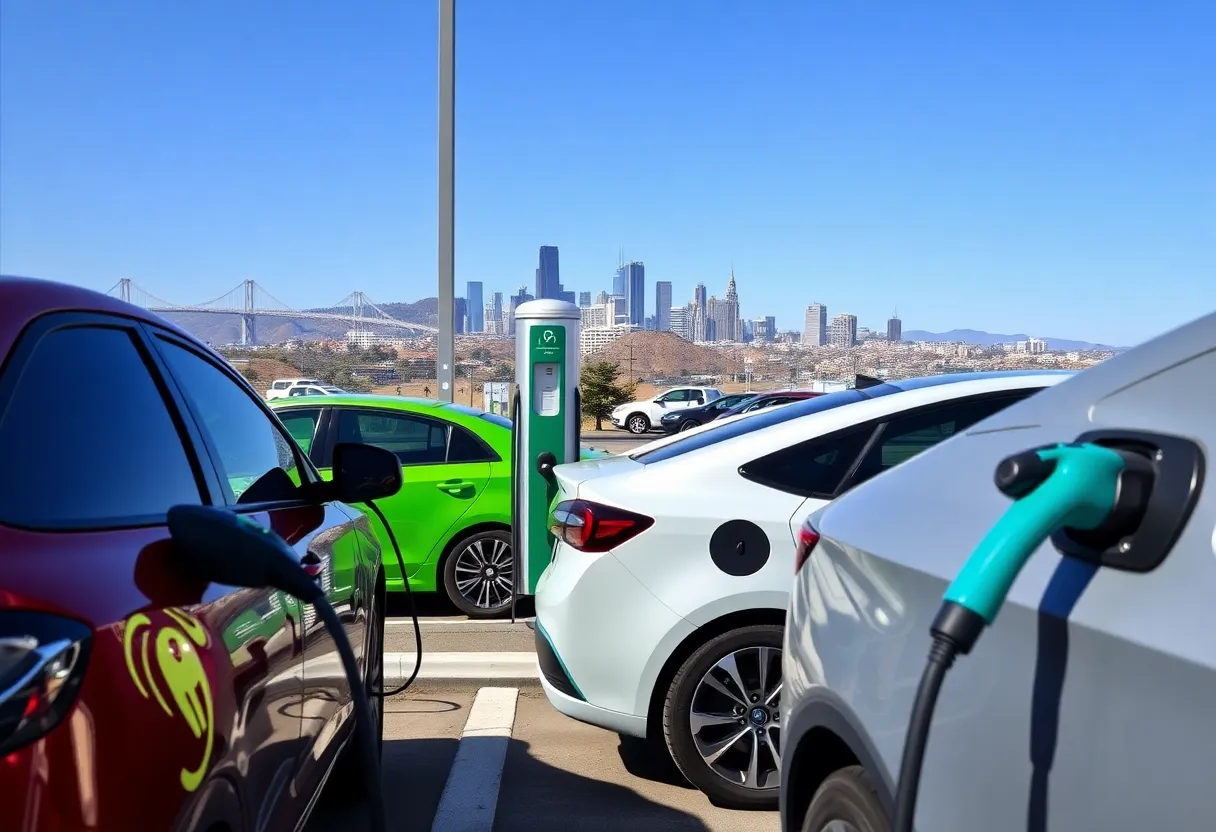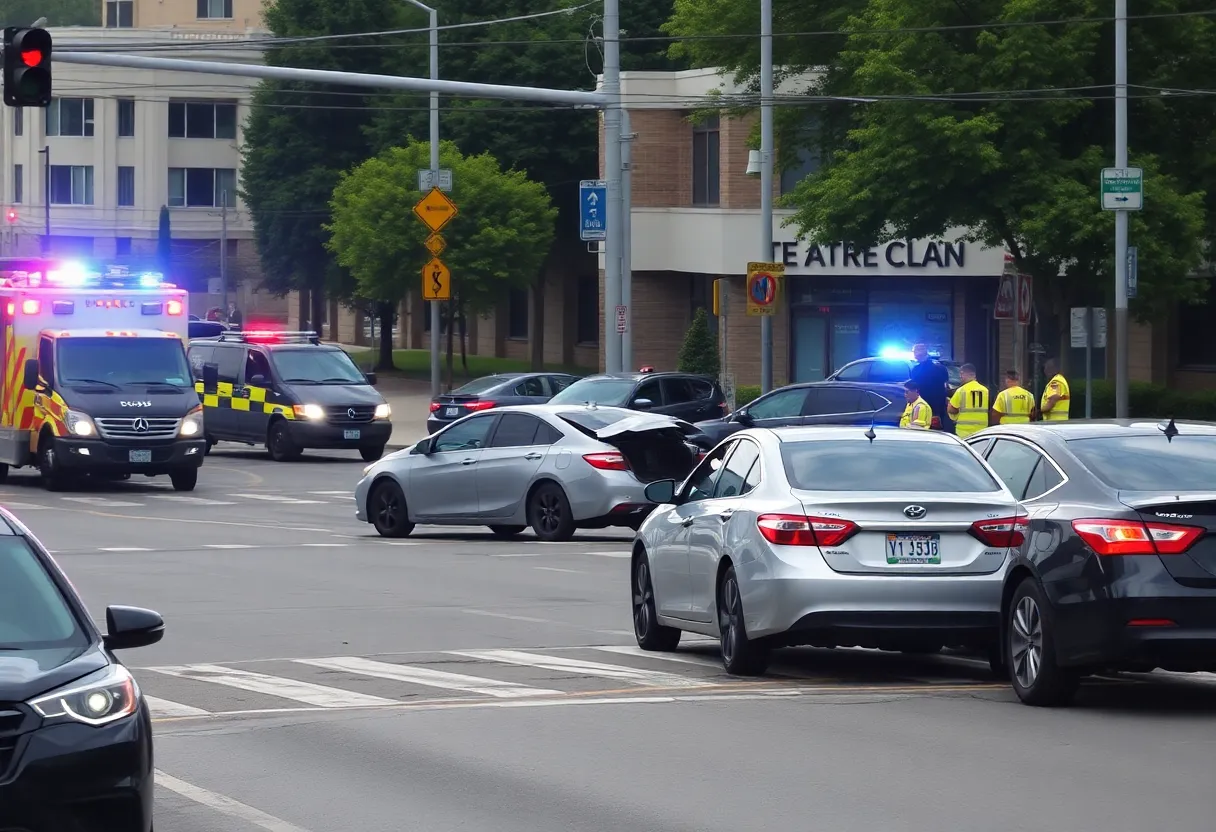News Summary
The U.S. Senate voted 51-44 to counter California’s plan to ban gasoline-powered cars by 2035, a move that Governor Newsom calls illegal. The decision ignites a legal battle as Governor Newsom plans to sue, claiming it undermines state rights and threatens climate initiatives. The ban aimed to phase out gasoline vehicles and promote electric vehicles (EVs), but opposition frames it as government overreach. As California faces a slowdown in EV sales, Newsom proposes measures to manage high gas prices amid industry controversies.
California
The U.S. Senate voted 51-44 to revoke California’s ambitious ban on gasoline-powered cars by 2035, utilizing the Congressional Review Act to challenge the state’s environmental regulations. This legislative action is expected to spark a significant legal battle, as California’s Governor Gavin Newsom and Attorney General Rob Bonta announced plans to file a lawsuit to block the Congressional decision.
The ban, initiated by an executive order issued by Governor Newsom in 2020, aimed to phase out all sales of gasoline vehicles in California, promoting the adoption of electric vehicles (EVs) and reducing greenhouse gas emissions. Following this executive order, the Environmental Protection Agency (EPA) granted California a waiver in December 2020, enabling the state to set its own climate emission standards under the Clean Air Act of 1970. This federal approval allowed California to move forward with its plan to eliminate gasoline cars from its roads by the target date of 2035.
Governor Newsom criticized the Senate’s move, arguing that it threatens the United States’ leadership in addressing climate change and undermines the rights of states to implement their own environmental policies. He indicated that the Senate’s action represents a significant breach of protocol and establishes a damaging political precedent. Additionally, Newsom labeled the Senate’s revocation as a “nuclear option” and equated it to “theft” from future generations facing an increasingly unsafe environment.
According to Newsom, the Senate’s decision to revoke the gasoline car ban is “illegal,” as it disregards critical findings from the Senate parliamentarian and the Government Accountability Office regarding the procedural validity of the vote. He expressed disappointment over the lack of bipartisan support, especially in light of past Republican leaders like Richard Nixon and Ronald Reagan, who were known for their environmental initiatives.
On the other hand, Senate Republicans hailed the revocation as a victory against what they perceived as an overreach of government regulations championed by Newsom. They framed the ban on gasoline vehicles as an aggressive assertion of control that could potentially harm both consumers and the automotive industry. Assembly Minority Leader James Gallagher characterized the ban as overly restrictive and misaligned with genuine climate strategy, while Rep. Kevin Kiley led efforts to reverse Newsom’s electric vehicle mandate, advocating for enhanced consumer choice in vehicle options.
In the Senate vote, only one Democrat, Elissa Slotkin, sided with Republicans, citing the concerns of her constituents associated with the auto industry. Meanwhile, Newsom contended that advancements in EV technology have made electric vehicles more affordable, particularly for middle-class families. Despite this, recent figures indicate a slowdown in EV sales in California, which have remained stagnant at approximately 20% market share amid worries regarding charging infrastructure availability.
Additionally, California experienced a significant drop in Tesla’s market share, which decreased by 12% in the first quarter, a change attributed to political controversies involving CEO Elon Musk. Brian Maas, a representative from the California New Car Dealers Association, cautioned that current mandates might be unrealistic if manufacturers cannot meet upcoming production targets.
In light of high gasoline prices, Newsom has proposed regulatory measures targeting the petroleum industry, an approach that critics argue could exacerbate California’s gas price crisis. State gas taxes are often viewed as a contributing factor to the elevated prices at the pump faced by Californian drivers. Among his proposals, plans include strategies to control price spikes at gas stations and ensure an adequate supply of gasoline across the state.
Deeper Dive: News & Info About This Topic
- Sacramento Bee: California Plan Gas Car Ban Could Hit Dead End
- Wikipedia: Governor of California
- Sacramento Bee: Latest Updates on California’s Gas Car Ban
- Google Search: California gas car ban
- CBS News: California Gas Car Ban Update
- Google Scholar: California car regulations
- California Globe: Newsom’s Special Legislative Session on Gas Prices
- Encyclopedia Britannica: Environmental Policy

Author: STAFF HERE BEVERLY HILLS WRITER
The Beverly Hills Staff Writer represents the experienced team at HEREBeverlyHills.com, your go-to source for actionable local news and information in Beverly Hills, Los Angeles County, and beyond. Specializing in "news you can use," we cover essential topics like product reviews for personal and business needs, local business directories, politics, real estate trends, neighborhood insights, and state news affecting the area—with deep expertise drawn from years of dedicated reporting and strong community input, including local press releases and business updates. We deliver top reporting on high-value events such as the Rodeo Drive Concours d'Elegance, the Beverly Hills artSHOW, Concerts on Canon, and holiday celebrations throughout the city. Our coverage extends to key organizations like the Beverly Hills Chamber of Commerce and Visit Beverly Hills, plus leading businesses in luxury fashion, hospitality, and entertainment that drive the local economy. As part of the broader HERE network, including HERELosAngeles.com, HERESantaAna.com, HEREHuntingtonBeach.com, and HERECostaMesa.com, we provide comprehensive, credible insights into Southern California's dynamic landscape.



